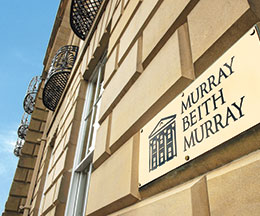
The law of Scotland provides that your spouse and children will automatically benefit from your estate, regardless of whether or not you left a Will. This is due to the system of Legal Rights, which is unique to Scotland in the UK.
Murray Beith Murray LLP is a leading Scottish private client law firm.
For 175 years we have specialised in meeting the legal, financial and administrative needs of individuals and families, family trusts, charities and private companies.

The law of Scotland provides that your spouse and children will automatically benefit from your estate, regardless of whether or not you left a Will. This is due to the system of Legal Rights, which is unique to Scotland in the UK.
Thousands of couples across Scotland chose to live together without getting married – for a wide variety of reasons. However, what most fail to realise is that without proper estate planning, they may be at risk of becoming involved in complicated legal matters.

When advising on and drafting a Will, a Solicitor must ensure that the Testator (the person making the Will) has full capacity to make the decisions featured in the document. Failure to do so can leave the Will open to challenge by disgruntled beneficiaries or those who believed they should have benefited from the Will.

As Scotland has now moved into Phase 3 of their route map out of lockdown, tight physical distancing measures still remain in place to prevent any further spread of COVID-19. While these measures are in place, you can still take valuable steps towards planning for your estate after you die, or in the event that you lose mental capacity. For many, estate planning may be a matter of urgency or concern at this time. As a result, the Law Society of Scotland has introduced interim guidance to ensure compliance with both social distancing measures and the law of Wills, Trusts and estates. Here’s what you need to know about estate planning during the coronavirus pandemic.

Many people are facing onerous obligations as the executor of the Estate of a loved one. These duties and responsibilities do not cease because of lockdown restrictions, and those acting as executors or trustees of estates or family trusts must understand what they must do, and what can be done at this exceptional time.
